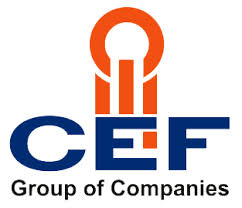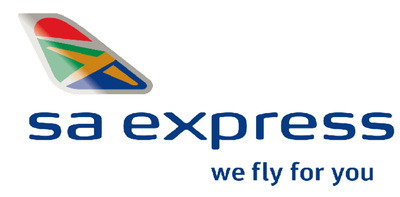Recent CIPC warnings to state-owned companies raises the spotlight on public sector governance25/9/2014 The recent warnings issued by the Company and Intellectual Property Commission to five state-owned companies demonstrate once again just how seriously boards need to take their governance role, says Parmi Natesan, Executive: Centre for Corporate Governance at the Institute for Directors in Southern Africa (IoDSA).
As reported in Business Day Live, the CIPC warned the boards of the South African Express Airways, South African Forestry Company, South African Broadcasting Corporation, South African Post Office and the Central Energy Fund that they risked being declared delinquent or of being placed on probation if they failed to address their non-compliance with the Companies Act. A finding of delinquency will adversely affect the long-term reputation of these directors, effectively calling their fitness for office into question. It could also results in these directors being disqualified in terms of the Companies Act, from taking up Directorship positions in the future. “The CIPC has indicated that it intends to be proactive in holding these companies and their boards to account,” observes Natesan. Governance best practice, as denoted in King III Principle 6.1, is for the board to take ultimate accountability for ensuring compliance with laws and regulations. “Compliance with the law is not optional, and directors need to make sure that the companies that they are overseeing are doing so.” Natesan points out that the IoDSA’s 2014 benchmark study of board performance shows that public-sector boards, by their own admission, are lagging those in the private sector in most areas. Aside from the board, Natesan says that in the public sector, the audit committee should play a big role in ensuring that the company, inter alia, complies with the applicable legislation. However, audit committees in the public sector generally need to be strengthened, as is indicated by the high percentage of public-sector entities whose financial statements are disclaimed annually by the Auditor-General—for example, only 48 percent of audited organisations obtained an unqualified audit opinion in 2011-12, while 94 percent were found to be materially non-compliant with legislation. The CIPC said it is particularly concerned about irregular expenditure, which points directly to a lack of quality audit committee oversight. “The long and short of it is that audit committees have a vital role to play in assisting their boards with discharging their duties as regards to compliance. In the public sector, particularly, audit committees sometimes face several challenges which make it difficult for them to adequately fulfil their responsibilities,” says Natesan. “As this latest development shows, boards in both the public and private sectors will bear the consequences of their audit committee’s lack of performance, and should thus be looking for ways to improve it—such as participating in the Public Sector Audit Committee Forum, a forum created to strengthen Audit Committees in the public sector.” ENDS MEDIA CONTACT: Cathlen Fourie, 012 664 2833, [email protected] For more information on the IoDSA please visit: Website: www.iodsa.co.za Twitter: @The_IoDSA LinkedIn: The Institute of Directors in Southern Africa group
0 Comments
 Parmi Natesan’s job requires her to lead a balanced life and have it all. It requires her to attend detailed strategic discussions with clients, and helping her two children with their homework. It demands a focus to detail on complex corporate governance issues, and to apply the same attention to detail when sewing costumes for a school play. Although this might seem like the perfect life, it requires being “fast-paced and super-organised” according to Parmi, who was recently promoted to Executive: Centre for Corporate Governance at the Institute of Directors of Southern Africa (IoDSA). “I am also very fortunate to work for a company that allows me the flexibility that I need in order to be able to have it all.” As an Indian female with deceivingly youthful features, Parmi has experienced her fair share of discrimination in the workplace, but did not allow it to influence her focus on making valuable contributions during her 12-year career serving a variety of industries. In her new role as part of the leadership team of the IoDSA, Parmi can combine her knowledge, experience and passion to further the IoDSA goals of Better directors, Better boards, Better business. With Bcom (Honours) and Bcom (cum laude) degrees from the former University of Port Elizabeth, Parmi is a Chartered Accountant (South Africa) passionate about the value of corporate governance for South African corporate and private citizens alike. “We should all pay attention to corporate governance, even if we are not we are shareholders or directors of companies, as we are all inevitably stakeholders,” said Parmi in an interview following her appointment. In line with her helpful nature, Parmi has provided a glimpse of her views on the world of work: Q: What do you think about when you are alone in your car? A: What I need to be doing, I am an absolute PLANNER. Always thinking of what is next, organising myself Q: Describe a balanced lifestyle in 5 words or less A: “Having it all” - I don’t believe that having a demanding career means that I cannot be doing other things like taking my kids to the park, watching them play sports, cooking dinner, sewing costumes and doing other projects for school, helping my kids with their homework, organising my household etc. Q: What song best describes your work ethic? A: "Harder, Better, Faster, Stronger" by Daft Punk Q: What is the most common misconception about you? A: That I am younger than what I am. People often get shocked at my appointments to bodies, at the fact that I have two children etc. because they don’t realise my age. When I first joined the IoDSA someone commented (when he heard my actual age) “Oh now your appointment makes more sense”. Some may say I have lucky genes, but from a business perspective I sometimes feel under-estimated at first because of this ... that is until they interact with me and I prove them wrong! Q: What is your view on discrimination in the workplace, irrespective of the apparent reason for discrimination? A: My stance on discrimination in the workplace is that everyone should be given equal opportunity; it’s a fair playing field. It is up to each individual to grab the opportunities available and make something of it. I find that sometimes people use discrimination as an excuse, when they are not willing to put in the time and effort to succeed. Q: Why is a focus on corporate governance important? A: For many reasons! Corporate governance: · increases accountability · increases entity value of companies, it improves share & credit ratings · lowers cost of capital · improves access to capital · improves operational performance · lowers risk of corporate scandals and damage to reputation. · improves decision making · ensures greater boardroom effectiveness · strengthens transparency Q: What would corporate governance look like in a perfect world? A: In a perfect world we wouldn’t need as many rules. So less laws/regulations and more self-governance with ethics and integrity permeating leadership, decision-making and oversight. ENDS _______________________________________________________________________________________________________ MEDIA CONTACT: Cathlen Fourie, 012 664 2833, [email protected] For more information on the IoDSA please visit: Website: www.iodsa.co.za Twitter: @The_IoDSA LinkedIn: The Institute of Directors in Southern Africa group |
Archives
July 2024
Categories
All
|






 RSS Feed
RSS Feed